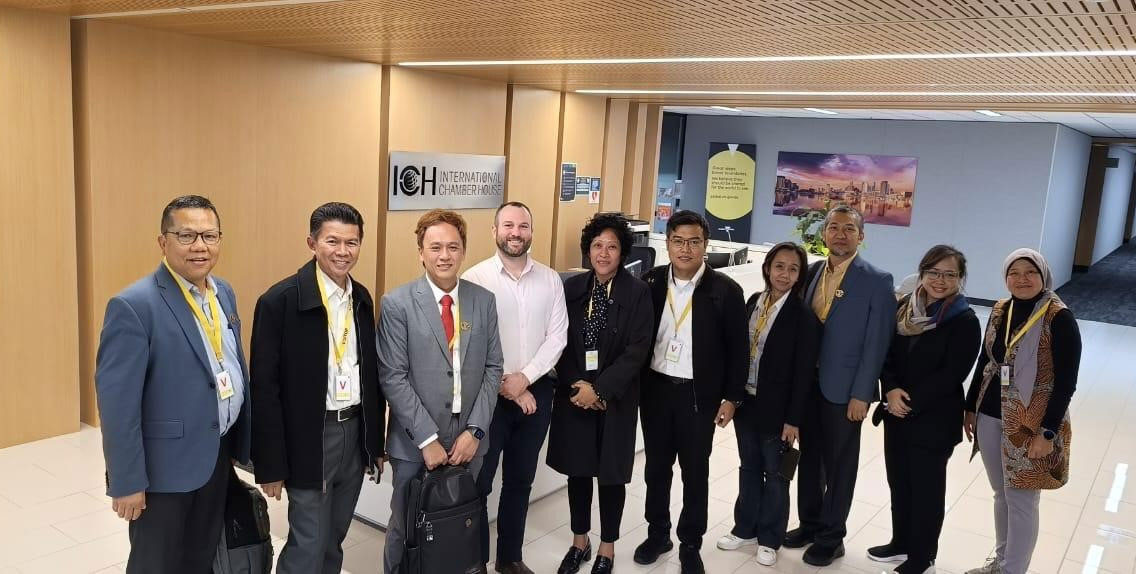Popular Reads
Top Results
Can't find what you're looking for?
View all search resultsPopular Reads
Top Results
Can't find what you're looking for?
View all search resultsAdvancing solar reflective roofing standards: Tatalogam Group, UPI, PUPR study
Change text size
Gift Premium Articles
to Anyone
T
he built environment is a significant contributor to energy consumption, greenhouse gas emissions and waste generation worldwide, as highlighted by the United Nations Environment Program (UNEP). With approximately 40 percent of global energy consumption and 30 percent of greenhouse gas emissions attributed to the built environment, addressing these impacts becomes paramount. One notable consequence is the urban heat island phenomenon, characterized by heightened temperatures in urban centers compared with surrounding areas, contributing to global warming.
The escalating urban heat island effect necessitates proactive measures, such as employing prefabricated and modular houses with exterior materials possessing high solar reflectivity, particularly for roofing. Beta Paramita, associate professor at the Indonesian Education University (UPI) Architecture Study Program and founder of BeCool and the Sustainable Buildings, Cities and Communities (SBCC) community, underscores the significance of this approach. Collaborating with Tatalogam Group, UPI academics have spearheaded the development of environmentally friendly modular houses, exemplified by the RAFLESIA or Indonesian Solar Reflective House. This initiative integrates light steel structures with light-colored roofing and walling boasting high solar reflectance index (SRI) levels.
Laboratory tests affirm the efficacy of these materials, with radiating power reaching 0.9, solar reflectance up to 72.1 percent, solar absorption up to 27.9 percent, and an impressive Solar SRI of up to 88. Maharany Putri, head of government and public relations at Tatalogam Group, emphasizes the environmental friendliness of the RAFLESIA modular house, meticulously designed and manufactured to minimize waste and expedite construction processes.
The culmination of these efforts led to the unveiling of the RAFLESIA modular house in Tipar village, Parahyangan, showcased at the International Symposium in Bandung. This milestone marked the initiation of a broader campaign by the SBCC to raise awareness and combat the urban heat island effect in Indonesia. Subsequently, on May 12, a delegation comprising representatives from the Directorate General of Housing at the Public Works and Housing (PUPR) Ministry and UPI academics embarked on a comparative study to Australia, a nation renowned for its progressive policies on construction materials.
Maharany elaborated on the objectives of the visit, emphasizing the exchange of technical insights and policy frameworks, particularly regarding cool roofing materials with high solar reflectivity. The delegation engaged with stakeholders in the states of Victoria and New South Wales (NSW), including esteemed academic institutions such as RMIT Melbourne and the University of New South Wales (UNSW), renowned for their contributions to sustainable building practices.
Edward Abdurrahman, director of housing management systems and strategy at the PUPR Ministry, shed light on Australia's robust policies promoting environmentally friendly construction. Notably, the states of Victoria and NSW have instituted measures incentivizing energy-efficient and low-carbon housing, including specifications for roof materials with prescribed reflectivity standards.
Following constructive discussions, the SBCC aims to harmonize efforts between academia, industry and government agencies to establish standards for solar reflective roofing materials in Indonesia. This collaborative endeavor seeks to bolster the domestic coated steel industry, enhance domestic content levels in construction and align with Indonesia's green and smart building policies.
In conclusion, the partnership between Tatalogam Group, UPI and PUPR Ministry underscores a concerted effort to mitigate the urban heat island effect through innovative construction practices. By advocating for solar reflective roofing standards and fostering interdisciplinary collaboration, these stakeholders aspire to realize environmentally friendly, sustainable and resilient housing solutions, contributing to global climate adaptation efforts.










